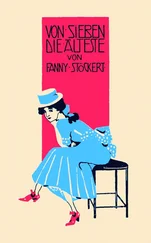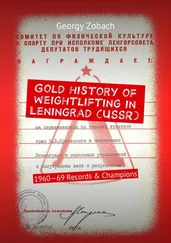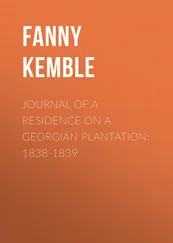Fanny Kemble - Records of a Girlhood
Здесь есть возможность читать онлайн «Fanny Kemble - Records of a Girlhood» — ознакомительный отрывок электронной книги совершенно бесплатно, а после прочтения отрывка купить полную версию. В некоторых случаях можно слушать аудио, скачать через торрент в формате fb2 и присутствует краткое содержание. Жанр: foreign_prose, foreign_antique, на английском языке. Описание произведения, (предисловие) а так же отзывы посетителей доступны на портале библиотеки ЛибКат.
- Название:Records of a Girlhood
- Автор:
- Жанр:
- Год:неизвестен
- ISBN:нет данных
- Рейтинг книги:4 / 5. Голосов: 1
-
Избранное:Добавить в избранное
- Отзывы:
-
Ваша оценка:
- 80
- 1
- 2
- 3
- 4
- 5
Records of a Girlhood: краткое содержание, описание и аннотация
Предлагаем к чтению аннотацию, описание, краткое содержание или предисловие (зависит от того, что написал сам автор книги «Records of a Girlhood»). Если вы не нашли необходимую информацию о книге — напишите в комментариях, мы постараемся отыскать её.
Records of a Girlhood — читать онлайн ознакомительный отрывок
Ниже представлен текст книги, разбитый по страницам. Система сохранения места последней прочитанной страницы, позволяет с удобством читать онлайн бесплатно книгу «Records of a Girlhood», без необходимости каждый раз заново искать на чём Вы остановились. Поставьте закладку, и сможете в любой момент перейти на страницу, на которой закончили чтение.
Интервал:
Закладка:
Horace Twiss was one of the readiest and most amusing talkers in the world, and when he began to make his way in London society, which he eventually did very successfully, ill-natured persons considered his first step in the right direction to have been a repartee made in the crush-room of the opera, while standing close to Lady L–, who was waiting for her carriage. A man he was with saying, "Look at that fat Lady L–; isn't she like a great white cabbage?" "Yes," answered Horace, in a discreetly loud tone, "she is like one—all heart, I believe." The white-heart cabbage turned affably to the rising barrister, begged him to see her to her carriage, and gave him the entrée of H– House. Lord Clarendon subsequently put him in Parliament for his borough of Wootton-Basset, and for a short time he formed part of the ministry, holding one of the under-secretaryships. He was clever, amiable, and good-tempered, and had every qualification for success in society.
He had married a Miss Searle, one of his mother's pupils at the fashionable Bath boarding-school, the living image of Scott's Fenella, the smallest woman that I have ever seen, with fairy feet and tiny hands, the extraordinary power of which was like that of a steel talon. On one occasion, when Horace Twiss happened to mention that his bright little spark of a wife sat working in his library by him, while he was engaged with his law or business papers, my mother suggested that her conversation must disturb him. "Oh, she doesn't talk," said he, "but I like to hear the scissors fall," a pretty conjugal reply, that left a pleasant image in my mind. His only child by her, a daughter, married first Mr. Bacon, then editor of the Times , and, after his death, John Delane, who succeeded him in that office and still holds it; so that her father said "she took the Times and Supplement."
About this time I began to be aware of the ominous distresses and disturbances connected with the affairs of the theater, that were to continue and increase until the miserable subject became literally the sauce to our daily bread; embittering my father's life with incessant care and harassing vexation; and of the haunting apprehension of that ruin which threatened us for years, and which his most strenuous efforts only delayed, without averting it.
The proprietors were engaged in a lawsuit with each other, and finally one of them threw the whole concern into chancery; and for years that dreary chancery suit seemed to envelop us in an atmosphere of palpitating suspense or stagnant uncertainty, and to enter as an inevitable element into every hope, fear, expectation, resolution, event, or action of our lives.
How unutterably heart-sick I became of the very sound of its name, and how well I remember the expression on my father's careworn face one day, as he turned back from the door, out of which he was going to his daily drudgery at the theater, to say to my aunt, who had reproached him with the loss of a button from his rather shabby coat, "Ah, Dall, my dear, you see it is my chancery suit!"
Lord Eldon, Sir John Leach, Lord Lyndhurst, and Lord Brougham were the successive chancellors before whom the case was heard; the latter was a friend of my family, and on one occasion my father took me to the House of Lords to hear the proceedings. We were shown into the chancellor's room, where he indeed was not, but where his huge official wig was perched upon a block; the temptation was irresistible, and for half a minute I had the awful and ponderous periwig on my pate.
While we were still living in Soho Square our house was robbed; or rather, my father's writing-desk was broken open, and sixty sovereigns taken from it—a sum that he could very hardly spare. He had been at the theater, acting, and my mother had spent the evening at some friend's house, and the next morning great was the consternation of the family on finding what had happened. The dining-room sideboard and cellarette had been opened, and wine and glasses put on the table, as if our robbers had drank our good health for the success of their attempt.
A Bow Street officer was sent for; I remember his portly and imposing aspect very well; his name was Salmon, and he was a famous member of his fraternity. He questioned my mother as to the honesty of our servants; we had but three, a cook, housemaid, and footman, and for all of these my mother answered unhesitatingly; and yet the expert assured her that very few houses were robbed without connivance from within.
The servants were had up and questioned, and the cook related how, coming down first thing in the morning, she had found a certain back scullery window open, and, alarmed by that, had examined the lower rooms, and found the dining-room table set out with the decanters and glasses. Having heard her story, the officer, as soon as she left the room, asked my mother if any thing else besides the money had been taken, and if any quantity of the wine had been drank. She said, "No," and with regard to the last inquiry, she supposed, as the cook had suggested when the decanters were examined, that the thieves had probably been disturbed by some alarm, and had not had time to drink much.
Mr. Salmon then requested to look at the kitchen premises; the cook officiously led the way to the scullery window, which was still open, "just as she found it," she said, and proceeded to explain how the robbers must have got over the wall of a court which ran at the back of the house. When she had ended her demonstrations and returned to the kitchen, Salmon, who had listened silently to her story of the case, detained my mother for an instant, and rapidly passed his hand over the outside window-sill, bringing away a thick layer of undisturbed dust, which the passage of anybody through the window must infallibly have swept off. Satisfied at once of the total falsity of the cook's hypothesis, he told my mother that he had no doubt at all that she was a party to the robbery, that the scullery window and dining-room drinking scene were alike mere blinds, and that in all probability she had let into the house whoever had broken open the desk, or else forced it herself, having acquired by some means a knowledge of the money it contained; adding, that in the very few words of interrogatory which had passed between him and the servants, in my mother's presence, he had felt quite sure that the housemaid and man were innocent; but had immediately detected something in the cook's manner that seemed to him suspicious. What a fine tact of guilt these detectives acquire in their immense experience of it! The cook was not prosecuted, but dismissed, the money, of course, not being recoverable; it was fortunate that neither she nor her honest friends had any suspicion of the contents of three boxes lying in the drawing-room at this very time. They were large, black leather cases, containing a silver helmet, shield, and sword, of antique Roman pattern and beautiful workmanship—a public tribute bestowed upon my uncle, and left by him to my father; they have since become an ornamental trophy in my sister's house. They were then about to be sent for safe keeping to Coutts's bank, and in the meantime lay close to the desk that had been rifled of a more portable but far less valuable booty.
Upon my uncle John's death his widow had returned to England, and fixed her residence at a charming place called Heath Farm, in Hertfordshire. Lord Essex had been an attached friend of my uncle's, and offered this home on his property to Mrs. Kemble when she came to England, after her long sojourn abroad with my uncle, who, as I have mentioned, spent the last years of his life, and died, at Lausanne. Mrs. Kemble invited my mother to come and see her soon after she settled in Hertfordshire, and I accompanied her thither. Cashiobury Park thus became familiar ground to me, and remains endeared to my recollection for its own beauty, for the delightful days I passed rambling about it, and for the beginning of that love bestowed upon my whole life by H– S–. Heath Farm was a pretty house, at once rural, comfortable, and elegant, with a fine farm-yard adjoining it, a sort of cross between a farm and a manor house; it was on the edge of the Cashiobury estate, within which it stood, looking on one side over its lawn and flower-garden to the grassy slopes and fine trees of the park, and on the other, across a road which divided the two properties, to Lord Clarendon's place, the Grove. It had been the residence of Lady Monson before her (second) marriage to Lord Warwick. Close to it was a pretty cottage, also in the park, where lived an old Miss M–, often visited by a young kinswoman of hers, who became another of my life-long friends. T– B–, Miss M–'s niece, was then a beautiful young woman, whose singularly fine face and sweet and spirited expression bore a strong resemblance to two eminently handsome people, my father and Mademoiselle Mars. She and I soon became intimate companions, though she was several years my senior. We used to take long rambles together, and vaguely among my indistinct recollections of her aunt's cottage and the pretty woodland round it, mix sundry flying visions of a light, youthful figure, that of Lord M–, then hardly more than a lad, who seemed to haunt the path of his cousin, my handsome friend, and one evening caused us both a sudden panic by springing out of a thicket on us, in the costume of a Harlequin. Some years after this, when I was about to leave England for America, I went to take leave of T– B–. She was to be married the next day to Lord M–, and was sitting with his mother, Lady W–, and on a table near her lay a set of jewels, as peculiar as they were magnificent, consisting of splendid large opals set in diamonds, black enamel, and gold....
Читать дальшеИнтервал:
Закладка:
Похожие книги на «Records of a Girlhood»
Представляем Вашему вниманию похожие книги на «Records of a Girlhood» списком для выбора. Мы отобрали схожую по названию и смыслу литературу в надежде предоставить читателям больше вариантов отыскать новые, интересные, ещё непрочитанные произведения.
Обсуждение, отзывы о книге «Records of a Girlhood» и просто собственные мнения читателей. Оставьте ваши комментарии, напишите, что Вы думаете о произведении, его смысле или главных героях. Укажите что конкретно понравилось, а что нет, и почему Вы так считаете.












